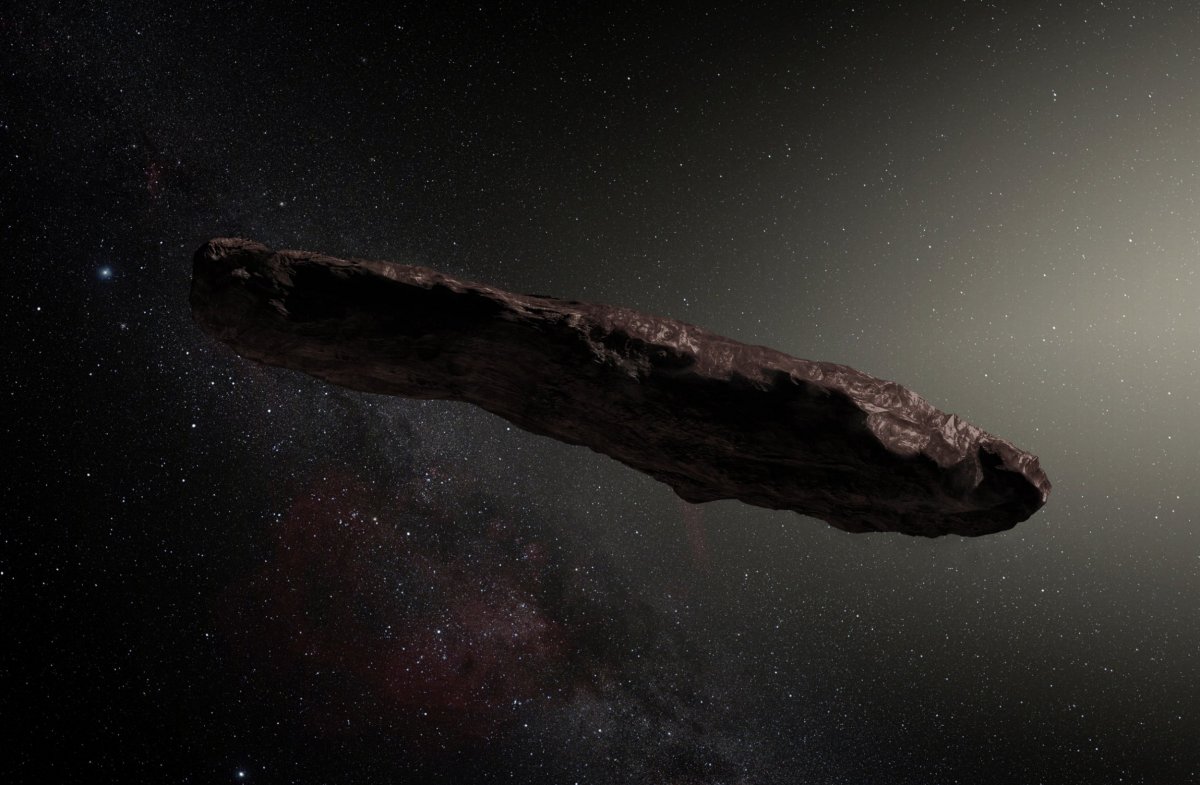In October 2017, astronomers spotted a strange, incredibly fast-moving object hurtling through the solar system. It was unlike anything that had ever been seen before.
'Oumuamua—a Hawaiian term roughly translating to "scout" or a "messenger from afar"—is thought to measure around 800 by 100 feet and is currently hurtling through the solar system at incredible speeds of around 16 miles per second.
Subsequent analysis showed that the object, 'Oumuamua, was the first interstellar asteroid ever to visit our solar system. However, its origins remain a mystery.
Now, a new study—published in the journal Monthly Notices of the Royal Astronomical Society—has shed light on this issue. In the paper, Alan Jackson, from the Centre for Planetary Sciences at the University of Toronto Scarborough, and his colleagues propose that 'Oumuamua very likely came from a binary star system in which two stars orbit a common center.
The scientists looked at how common binary star systems are in the Milky Way, and also how efficient they are at ejecting objects from their sphere of influence.
They found that binary star systems are more common and eject objects frequently, leading to the conclusion that 'Oumuamua was far more likely to come from such a system compared to a single star system like our own.

"In our own solar system almost all of the objects that are ejected are icy comets," Jackson told Newsweek. "This is because the main bodies that eject things are Neptune and Jupiter, and these are further out in the solar system where most of the objects are icy. We expect that this would also be true for most other single star systems."
However, 'Oumuamua is not an icy comet. Scientists know this because it has not shown any signs of producing comet-like activity — it didn't form a tail of gas as it approached the Sun, for example.
"In a binary system, unlike in the solar system, it is the central binary stars themselves that can eject objects from the system," Jackson said. "This means that it is easy to eject rocky material from the inner parts of the system. In addition about half of all stars are in binaries, whereas only about 10% of single star systems have a giant planet that would be efficient at ejecting material."
Among other findings, the researchers believe that 'Oumuamua came from a system which contained a relatively hot, high mass star, because these tend to have more rocky objects orbiting them closely. It is also likely that the space rock was ejected from its home system around the time that planets were forming, the scientists propose in the study.
But how do we know 'Oumuamua didn't originate in our solar system?
"Even when you trace its path out to very large distances from the Sun, it is still moving away at about 16 miles per second," Jackson said. 'Oumuamua also has an extremely eccentric orbit of 1.2, and any orbital eccentricity over 1.0 means an object exceeds the escape velocity of the Sun, and is therefore not bound to the solar system.
Scientists also know a number of other things about the object.
"It is very elongated, it seems to be shaped rather like a cigar, making it one of the most elongated objects that we know of," Jackson said. "It showed no signs of activity during its passage through the solar system which is why we believe it is rocky. We also know that it seems to be tumbling chaotically rather than rotating stably around one of it's axes."
Unfortunately, given its small size and the fact it's moving further and further away, we have now probably collected all the data we are going to get before it reenters interstellar space and moves beyond the reach of Earth-based instruments, Jackson added.
The latest findings have provided researchers with valuable insights into 'Oumuamua's history, however, with billions of star systems in the Milky Way, we are no closer to identifying exactly where it came from—and perhaps we never will.
Uncommon Knowledge
Newsweek is committed to challenging conventional wisdom and finding connections in the search for common ground.
Newsweek is committed to challenging conventional wisdom and finding connections in the search for common ground.
About the writer
Aristos is a Newsweek science reporter with the London, U.K., bureau. He reports on science and health topics, including; animal, ... Read more
To read how Newsweek uses AI as a newsroom tool, Click here.








